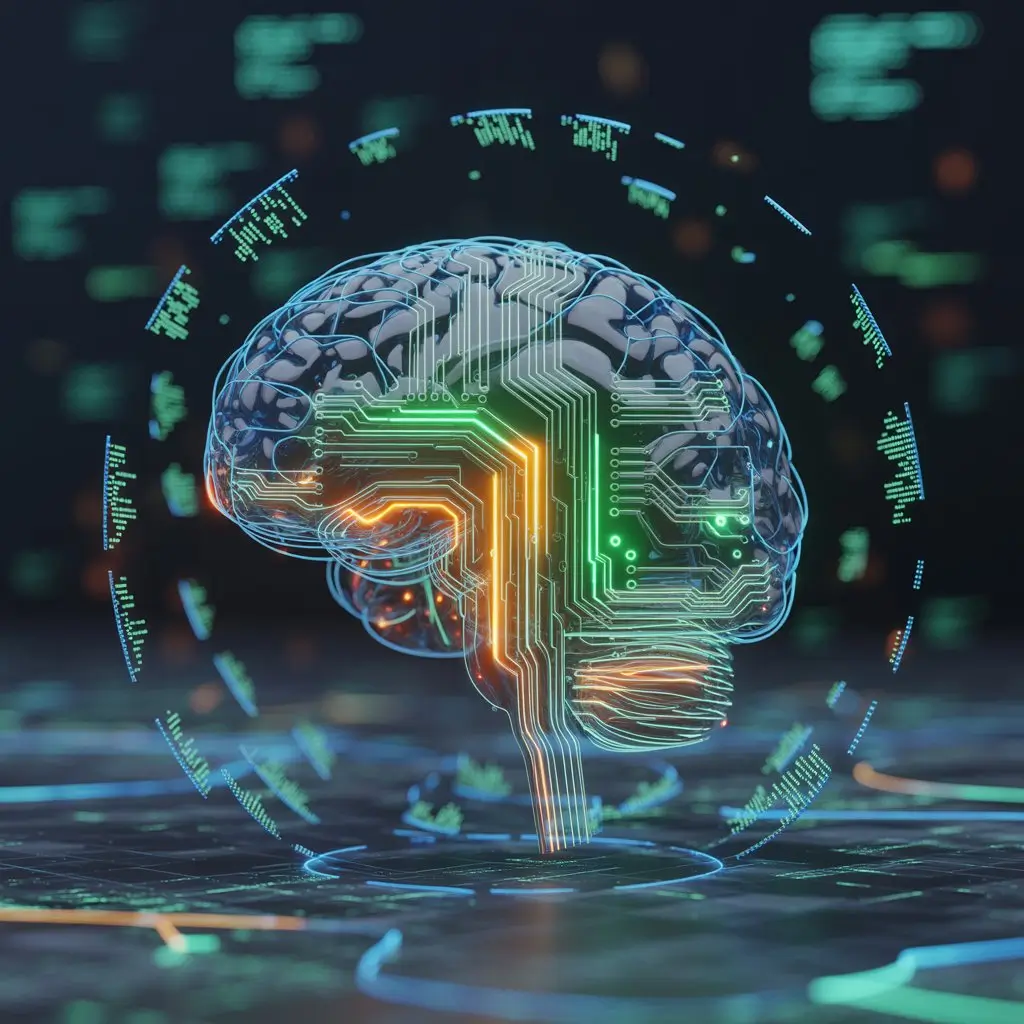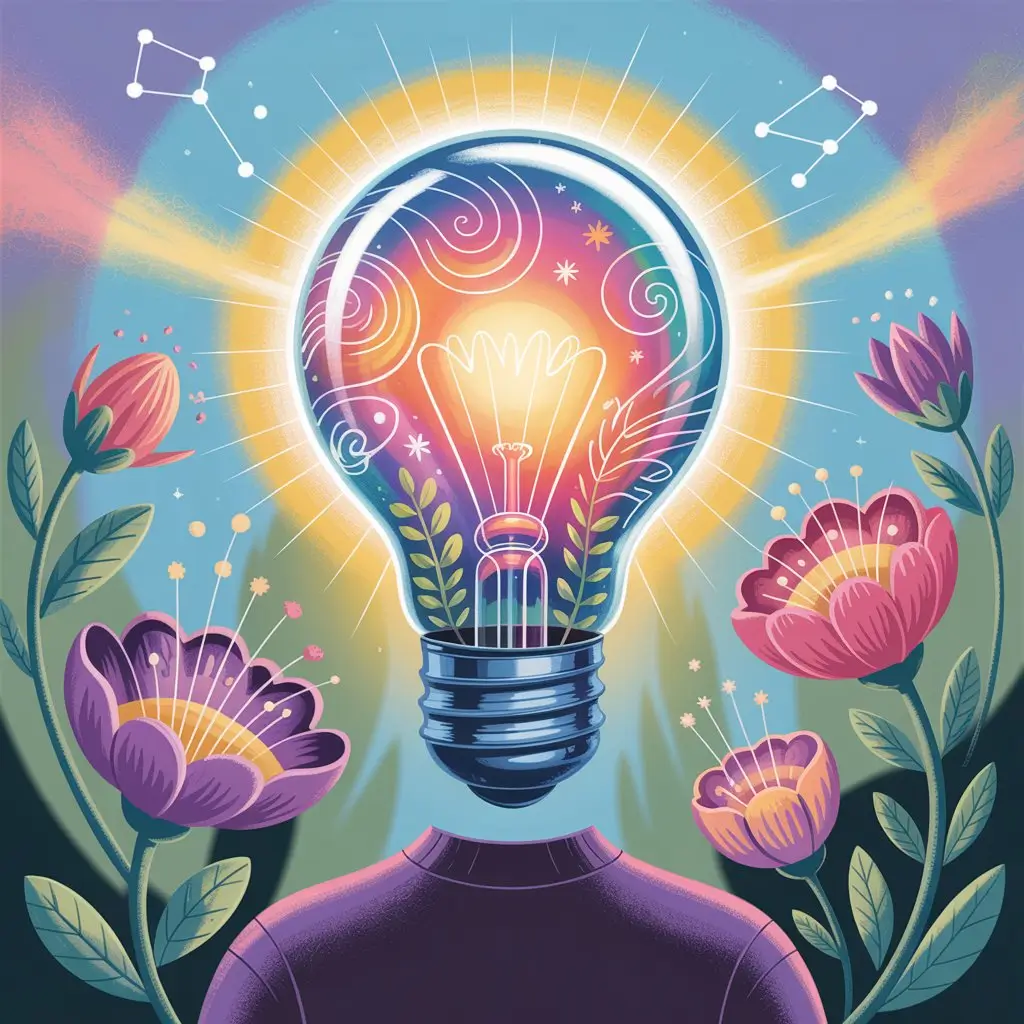Many people go through life unaware of their full potential, often overlooking a hidden talent that could lead to greater personal fulfilment, new opportunities, and a deeper understanding of themselves. Discovering these hidden talents, however, is not always easy. Traditional self-discovery methods rely heavily on introspection, trial and error, or feedback from others, which can be limited by personal biases or lack of exposure.
Artificial intelligence (AI) is changing this by analyzing patterns in behaviour, preferences, and experiences to provide personalized insights that uncover hidden talents and interests you might never have considered. Unlike generic advice, AI uses data-driven methods to tailor suggestions to your unique profile.
In this chapter, we will explore how AI’s ability to process and interpret vast amounts of personal data can open doors to new skills and hobbies. Acting as a guide, AI illuminates paths for growth that align with your natural inclinations and lifestyle. As AI technology advances, it promises to become an invaluable partner in the journey of discovering and developing your hidden talents.
Unlocking Hidden Talents and Interests with AI
Many people go through life without fully realizing the range of talents and interests they possess. These hidden abilities often remain dormant simply because we lack the right tools or insights to recognize them. Discovering these untapped potentials can lead to greater satisfaction, new opportunities, and a richer, more fulfilling life. However, traditional methods of self-discovery, such as reflection, trial and error, or feedback from others, can sometimes fall short. They may be limited by personal biases, lack of exposure, or simply not knowing where to look.
This is where artificial intelligence (AI) offers a fresh perspective. By analyzing patterns in your behaviour, preferences, and past experiences, AI can provide personalized recommendations that help you uncover talents and interests you might not have considered before. Unlike generic advice, AI’s data-driven approach tailors suggestions specifically to your unique profile, making the journey of self-discovery more precise and effective.
In this chapter, we will explore how AI’s ability to interpret personal data can serve as a powerful guide in revealing new skills and hobbies. As AI technology advances, it is becoming an essential companion for anyone eager to explore their full potential and embrace continuous personal growth.
Artificial intelligence has transformed the way we understand and uncover hidden talents by analyzing data in ways that go far beyond traditional methods. Instead of relying solely on resumes, self-assessments, or surface-level observations, AI dives deep into diverse data sources to detect skills and potential that often remain unnoticed.
AI systems gather information from multiple channels, such as social media activity, work performance records, online interactions, and even informal contributions like community involvement or hobby-related content. By combining these varied inputs, AI creates a comprehensive profile that reflects not only what you have done but also what you are naturally inclined to excel at.
AI stands out because it uses predictive analytics. This means AI doesn’t just look at past achievements; it assesses growth potential and adaptability by identifying patterns linked to success in various fields. For example, an AI tool might notice your problem-solving skills demonstrated in a hobby and suggest related career paths or new skills to develop.
Moreover, AI utilizes natural language processing and semantic analysis to interpret unstructured data, such as written feedback, emails, or online posts, and uncover implicit skills that traditional evaluations might overlook. These subtle insights help reveal talents that are not explicitly stated but are evident through behaviour and communication style.
By continuously learning from new data, AI refines its recommendations, ensuring they remain relevant as your interests and skills evolve. This dynamic process allows AI to act as a personalized guide, helping you discover hidden talents and suggesting opportunities that align with your unique profile.
In summary, AI’s ability to analyze rich, diverse data sources and identify meaningful patterns provides a powerful tool for uncovering hidden talents. It opens doors to self-awareness and growth by highlighting strengths and interests you may not have recognized on your own, making personal development more targeted and effective.
How AI Analyzes User Data to Reveal Hidden Talents
Artificial intelligence has transformed the way we understand and uncover hidden talents by analyzing data in ways that go far beyond traditional methods. Instead of relying solely on resumes, self-assessments, or surface-level observations, AI dives deep into diverse data sources to detect skills and potential that often remain unnoticed.
AI systems gather information from multiple channels, such as social media activity, work performance records, online interactions, and even informal contributions like community involvement or hobby-related content. By combining these varied inputs, AI creates a comprehensive profile that reflects not only what you have done but also what you are naturally inclined to excel at.
One of the key strengths of AI lies in its use of predictive analytics. This means AI doesn’t just look at past achievements; it assesses growth potential and adaptability by identifying patterns linked to success in various fields. An AI program could spot that you apply problem-solving skills in a hobby and suggest jobs or additional areas to learn in that area.
Moreover, AI employs natural language processing and semantic analysis to interpret unstructured data, such as written feedback, emails, or online posts, to uncover implicit skills that traditional evaluations might miss. These subtle insights help reveal talents that are not explicitly stated but evident through behavior and communication style.
By continuously learning from new data, AI refines its recommendations, ensuring they remain relevant as your interests and skills evolve. This dynamic process allows AI to act as a personalized guide, helping you discover hidden talents and suggesting opportunities that align with your unique profile.
In summary, AI’s ability to analyze rich, diverse data sources and identify meaningful patterns provides a powerful tool for uncovering hidden talents. It opens doors to self-awareness and growth by highlighting strengths and interests you may not have recognized on your own, making personal development more targeted and effective.

AI-Powered Personality Analysis and Its Role in Discovering Hidden Talents
One of the most remarkable ways AI helps uncover hidden talents is through advanced personality analysis. By examining how you communicate, behave, and express yourself, AI can generate detailed insights into your personality traits, which often correlate with specific skills and interests.
AI systems use techniques such as natural language processing (NLP) to analyze text, speech, or video data. For instance, when you write emails, participate in conversations, or the use of positive or negative words, references to social situations, or expressions of emotions. These linguistic cues are linked to well-established personality frameworks, such as the Big Five traits (openness, conscientiousness, extraversion, agreeableness, and neuroticism).
By processing thousands of words, AI can build a reliable profile of your personality. This profile helps predict areas where you might naturally excel or enjoy exploring. For example, a high degree of openness might suggest a talent for creative pursuits, while strong conscientiousness could indicate an aptitude for detail-oriented tasks.
Moreover, AI personality assessments go beyond static tests by continuously learning and adapting as more data becomes available. This dynamic approach allows AI to refine its understanding of you over time, offering increasingly accurate suggestions for new skills or hobbies that fit your evolving profile.
In practical terms, this means AI can recommend activities aligned with your personality strengths, helping you discover talents that traditional self-assessments might overlook. Whether it’s encouraging you to try public speaking, creative writing, or strategic planning, AI acts as a personalized coach, guiding you towards areas where you are most likely to thrive.
In summary, AI-powered personality analysis transforms how hidden talents are identified by leveraging rich data and sophisticated algorithms. This technology provides a nuanced and evolving picture of your unique traits, opening doors to self-discovery and growth tailored specifically to you.
Practical Examples of AI Suggesting New Skills and Hobbies
Artificial intelligence is no longer just a concept of the future, it is actively helping individuals discover new talents and interests by analyzing their unique data and offering personalized recommendations. This chapter explores how AI-powered tools suggest skills and hobbies tailored to your personality, behaviour, and past experiences, making self-discovery more accessible and enjoyable.
One way AI achieves this is by examining your current habits and preferences. For instance, if you frequently engage with creative content, AI might recommend exploring artistic hobbies such as painting, creative writing, or photography. Conversely, if your data shows an interest in logical problem-solving, AI could suggest activities like coding, chess, or puzzle-solving that align with your strengths.
Some AI platforms go beyond simple suggestions by creating customized learning paths. These paths break down new skills into manageable steps, offer resources like tutorials or courses, and adapt recommendations based on your progress and feedback. This personalized guidance helps maintain motivation and makes it easier to develop new talents.
In professional settings, AI is also used to uncover hidden skills that employees may not realize they possess. By analyzing work patterns, communication styles, and project contributions, AI can identify strengths such as leadership potential, creativity, or collaboration skills. This insight enables organizations to recommend roles or projects that better fit individual capabilities, fostering growth and job satisfaction.
Additionally, AI-powered apps designed for personal use can suggest hobbies that complement your lifestyle and personality. For example, an AI might recognize your interest in nature and recommend outdoor activities like hiking or gardening, or detect your social tendencies and propose group activities such as dance classes or volunteering.
By continuously learning from your interactions and preferences, AI keeps refining its suggestions, ensuring that the skills and hobbies it recommends remain relevant and engaging. This dynamic approach helps you explore new areas of growth with confidence, supported by data-driven insights tailored just for you.
In summary, AI’s ability to analyze your unique profile and offer personalized skill and hobby suggestions transforms how hidden talents are discovered. It opens doors to new experiences and personal development opportunities that might otherwise remain unexplored, making self-improvement a more guided and rewarding journey.

AI in Talent Identification Beyond Self-Help
Artificial intelligence is increasingly playing a vital role not only in personal self-help but also in broader talent identification across professional and educational settings. By analyzing diverse data points, AI helps reveal hidden strengths and skills that might otherwise go unnoticed, enabling individuals and organizations to make better-informed decisions about growth and development.
In the workplace, AI systems evaluate employee performance, communication patterns, and project contributions to identify untapped potential. For example, an AI-powered career recommendation platform can analyze an employee’s skills, interests, and work history to suggest new roles or projects that better align with their strengths. This personalized insight helps companies nurture talent internally, improve employee satisfaction, and boost productivity by placing people in positions where they can excel.
Educational institutions also benefit from AI’s ability to detect latent talents in students. By tracking academic performance, participation, and behavioural data, AI tools can highlight areas where a student shows promise but may not have fully explored. This enables educators to provide targeted support, recommend suitable courses, or suggest extracurricular activities that foster skill development and personal growth.
Moreover, AI-driven career recommendation systems combine individual profiles with real-time labor market trends to suggest career paths that match both personal abilities and future job demands. These systems continuously update their advice based on evolving industry needs, helping users prepare for relevant opportunities and reducing the risk of skill mismatches.
The impact of AI in talent identification extends beyond individual benefit; it also addresses larger challenges such as workforce development and educational alignment with market needs. By providing data-driven insights, AI empowers people to make strategic choices that enhance their potential and contribute to long-term success.
In summary, AI’s role in talent identification goes far beyond self-help. It serves as a powerful tool for organizations and educational systems to uncover hidden abilities, guide career development, and align skills with opportunities, ultimately fostering growth on both personal and societal levels.
Benefits of Using AI to Discover Hidden Talents and Interests
Artificial intelligence offers several significant advantages when it comes to uncovering hidden talents and interests, making the self-discovery process more personalized, efficient, and insightful. By leveraging AI, individuals gain access to tailored insights that go beyond traditional self-assessment methods, helping them unlock their full potential.
One major benefit is enhanced self-awareness. AI analyzes a wide range of data, from your habits and preferences to communication styles and past experiences, to provide a detailed, objective picture of your strengths and inclinations. This data-driven insight helps you recognize abilities and interests that might have gone unnoticed, offering a clearer understanding of where you excel and what activities might bring you fulfilment.
Another advantage is the personalization AI brings to skill and hobby recommendations. Instead of generic advice, AI suggests new areas to explore based on your unique profile, ensuring that the opportunities it presents resonate with your personality and lifestyle. This tailored approach increases motivation and engagement, as you are more likely to pursue activities that genuinely fit your natural tendencies.
AI also supports continuous growth by adapting its recommendations as you evolve. As you engage with new skills or hobbies, AI tracks your progress and feedback, refining its suggestions to keep you challenged and inspired. This dynamic guidance helps maintain momentum and prevents stagnation in your self-improvement journey.
Moreover, AI can help overcome common blind spots and biases in self-assessment. Because it relies on data rather than subjective judgment alone, AI can reveal talents that you might underestimate or overlook due to a lack of confidence or exposure. This objective perspective encourages you to step outside your comfort zone and try new pursuits.
However, it’s important to remember that AI works best as a complement to human insight. While AI provides valuable recommendations and analysis, human judgment, curiosity, and reflection remain essential to fully realize your potential.
In summary, AI enhances the discovery of hidden talents and interests by offering personalized, data-driven insights that increase self-awareness, motivation, and growth. When combined with human intuition and effort, AI becomes a powerful ally in the journey toward unlocking your fullest capabilities.

Ethical Considerations and the Need for Human Oversight in AI-Driven Talent Discovery
While AI offers powerful tools for uncovering hidden talents and suggesting new interests, it is essential to recognize its limitations and the ethical challenges involved. AI systems rely heavily on data, and if that data is biased or incomplete, the recommendations they generate can unintentionally reinforce existing prejudices or overlook important human nuances.
One major concern is algorithmic bias. AI learns from historical data, which may reflect societal inequalities or organizational prejudices. Without careful management, AI can perpetuate these biases, leading to unfair or inaccurate talent assessments. For example, certain groups might be systematically underrepresented or misjudged if the training data lacks diversity or contains skewed patterns.
Because of these risks, human judgment remains indispensable. People should see AI as something to help, not as someone who decides for them. Final evaluations, especially those affecting career development or hiring, require human oversight to interpret AI insights within context and ensure fairness. Human leaders bring empathy, cultural understanding, and ethical considerations that AI cannot replicate.
Privacy is another critical issue. Using personal data for talent analysis demands strict adherence to data protection laws and transparent communication with users. Individuals must have control over how their information is collected, stored, and used, and organizations must safeguard this data against misuse.
Moreover, AI cannot fully grasp complex qualities such as emotional intelligence, cultural fit, or motivation, factors that are vital in personal and professional growth. These require human interaction, coaching, and mentorship to nurture effectively.
In summary, while AI enhances the discovery of hidden talents and interests through data-driven insights, it must be implemented responsibly. Combining AI’s analytical power with human oversight ensures ethical use, reduces bias, protects privacy, and maintains the essential human elements of judgment and empathy in personal development. This balanced approach maximizes the benefits of AI while safeguarding fairness and trust.
Conclusion
Artificial intelligence is reshaping the way we discover our hidden talents and interests by offering personalized, data-driven insights that go beyond traditional self-help methods. Through analyzing diverse aspects of your behaviour, preferences, and communication, AI can reveal strengths and passions that might otherwise remain unnoticed. Its ability to curate tailored recommendations empowers you to explore new skills and hobbies aligned with your unique profile, making personal growth more focused and rewarding.
At the same time, it’s important to approach AI as a complementary tool rather than a replacement for human intuition and reflection. Ethical considerations, privacy, and the need for human oversight ensure that AI’s guidance is fair, respectful, and balanced. When used thoughtfully, AI becomes a powerful ally in your journey of self-discovery, helping you unlock potential, embrace new opportunities, and cultivate a richer, more fulfilling life.
By combining the precision of AI with your curiosity and effort, you open the door to continuous growth and transformation, turning hidden talents into realized strengths and unexplored interests into exciting new passions.

